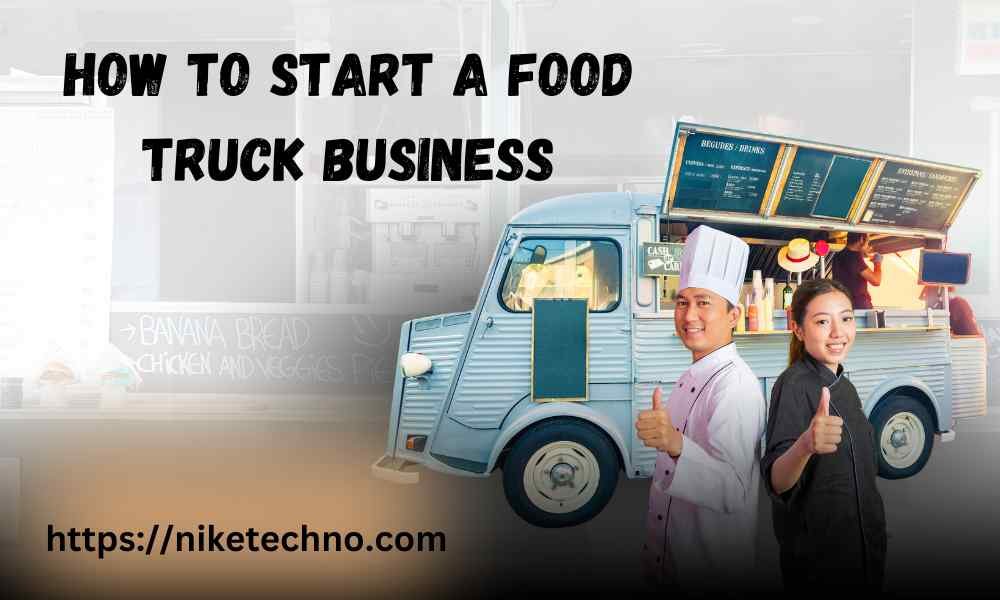Starting a food truck business can be an enjoyable and worthwhile mission for aspiring entrepreneurs in the culinary industry. If you’re wondering how to start a food truck business, a mobile kitchen allows you to immediately deliver precise culinary creations to your clients, offering convenient dining in various locations. Whether you’re passionate about serving gourmet meals, comfort foods, or ethnic cuisines, food trucks provide an innovative platform to share your culinary vision with a wide audience. Beyond simply serving meals, food trucks have become cultural icons, often associated with vibrant food festivals and community events.
To start this adventure, consider numerous crucial elements. Menu-making plans inspire your commercial enterprise, as your offerings must be precise and attractive to stand out in an aggressive market. Sourcing satisfactory substances is equally crucial, as customers increasingly demand fresh and regionally sourced merchandise. Additionally, obtaining the essential permits and licenses is non-negotiable to ensure compliance with local regulations and meal protection requirements. The design of your truck additionally performs a pivotal position; an eye-catching and properly branded car can appeal to more customers, supporting your enterprise to thrive. Finally, identifying profitable locations to park and serve your food is essential for maximizing sales. Strategic locations, including busy downtown areas, corporate offices, and famous occasions, can beautify your commercial enterprise’s visibility and income.
How to Start a Food Truck Business With No Money
Starting a food shipping commercial enterprise with little or no coin drift is challenging. However, it’s now not impossible. With resourcefulness and backbone, you can start small and develop your enterprise step by step. Leasing a meal truck instead of buying one outright can reduce initial prices drastically. Partnering with local companies or participating in shared kitchen programs can also help decrease the charges associated with food education and storage. Crowdfunding systems, including Kickstarter or GoFundMe, can provide a possibility to raise the budget while concurrently promoting your business to a much broader target market.
Another powerful method is to start by supplying catering offerings or installing meal stalls at neighborhood markets and events. This technique permits you to build a consumer base and generate revenue without the advance fees of a truck. Negotiating with suppliers for reductions and sourcing 2D-hand kitchen devices are extra approaches to cut costs and preserve excellence. By being innovative and focusing on essential investments, you may correctly release your Meals Truck commercial enterprise even in a decent price range.
What Do You Need to Start a Food Truck Business?
Starting a meal truck commercial enterprise involves developing a detailed marketing strategy. This plan must outline your idea, audience, menu, pricing strategy, and financial projections. A nice baseline serves as a roadmap for your business and is essential for securing funding from investors or lenders. Identifying your goal marketplace is fundamental to supplying dishes that cater to their preferences and differentiating yourself from the aggressive food truck scene.
Obtaining the necessary licenses and permits is another crucial aspect. These include health department approval, food service certifications, and business licenses. Compliance with local regulations ensures efficiency and avoids potential legal issues. Choosing the right vehicle is equally essential. The truck must meet health and safety standards and be large enough to carry your equipment and personnel. In addition, investing in high-quality kitchen tools and equipment can improve the efficiency and quality of your food.
Building a strong brand is essential to attracting and retaining customers. This includes developing a professional logo, creating a cohesive theme for your truck, and establishing an online presence through social media and a dedicated website. Social media platforms can help you communicate with your audience, announce locations, and promote and create special offers.
Why People Start Food Truck Businesses
There are numerous reasons why individuals choose to start food truck businesses:
- Passion for Food: Many marketers are driven by a love for cooking and a preference to share their culinary creations with the world. Food trucks provide a platform to showcase unique flavors and innovative dishes that emphasize individual creativity.
- Entrepreneurial Spirit: Running a meals truck allows you to be your boss, set your schedule, and grow your commercial enterprise from scratch.
- This autonomy is attractive to thosearching for career independence and managemin
- Lower Startup Costs: Compared to conventional brick-and-mortar eating places, food vans have considerably decreased startup fees, making them an option for marketers with restrained capital. This affordability opens the door to culinary ventures for people needing the property for a complete-scale restaurant.
- Flexibility: Meal vans’ mobility permits proprietors to serve clients in diverse places, presenting a convenient eating experience. This flexibility also allows meal trucks to cater private activities, attend galas, and explore new markets, improving revenue potential.
- Growing Industry: The food truck industry has experienced a first-rate increase in recent years, fueled by increasing customer demand for particular and handy eating alternatives. This trend makes meal vans appealing for marketers seeking to enter a thriving market.
The Advantages of a Food Truck Business
Starting a food truck commercial enterprise gives numerous blessings, making it an appealing choice for aspiring entrepreneurs. One principal benefit is decreased begin-up fees compared to standard restaurants. Food trucks provide a cost-powerful way to enter the culinary industry, with lower services, rent, and utility expenses. In addition, meal vehicles provide more location flexibility, allowing owners to reach exceptional clients and adapt to converting market needs.
Lower operating costs contribute to higher profitability as investment and labor costs are reduced. Food trucks are also highly adaptable, allowing owners to experiment with menus and react instantly to culinary trends. Food trucks’ unique and fashionable nature often appeals to customers looking for a new restaurant, further increasing their appeal.
In addition, food truck operations can thrive in cities and towns, providing flexibility. The advantages of mobility, low costs, and creative branding allow food truck owners to build a profitable business without financial risk.
The Challenges of a Food Truck Business
While the blessings of starting a food truck enterprise are numerous, there are also demanding situations to consider. One of the principle boundaries is opposition in the industry. With many meal vehicles competing for interest, distinctive time your emblem and winning loyal clients may take time. Effective advertising and a unique cost proposition are essential to face out.
Compliance is another task, as food truck proprietors must navigate a complicated net of licenses and permits that vary from place to place. Staying current on fitness and safety necessities, parking guidelines, and nearby ordinances is crucial to staying busy.
The commercial enterprise’s seasonality can also affect profitability, particularly in areas with severe winters or wet seasons. Inclement weather may reduce sales because of restrained working hours. In addition, confined space in a food truck can motivate logistics demanding situations, which include a lack of storage and cooking centers, which can affect food supply and exceptional mod.
To conquer these barriers, food truck operators should be conscious of strategic planning, regular innovation, and extraordinary customer service. Building sturdy relationships with local groups and changing marketplace tendencies can help food truck companies thrive despite those challenges.
Food Truck Permits and Regulations
Operating a food truck requires obtaining several permits and adhering to regulations. Key requirements include:
- Food Handler Card: All employees involved in food production must pass a food safety test.
- Mobile Food Facility License: Also known as a food truck license, this is a must to operate a food truck.
- Business License: A valid business license is required.
- Employer Number (EIN): Required for tax purposes and payroll.
- Commissioner’s Agreement: Food trucks must have permission from the Commissioner to store and process food.
- Vehicle Registration: The truck must be registered with the DMV.
- Mobile Food Vendor License: This license is issued by local health departments and is required for food service.
Ensuring compliance with these regulations is vital for avoiding fines and ensuring smooth operations.
Conclusion
Starting a food truck enterprise calls for a combination of passion, creativity, and strategic planning. If you’re wondering how to start a food truck business, marketers can effectively navigate the challenges of this competitive industry by understanding the market, targeting the right audience, and complying with regulations. With the right approach, a food truck can delight customers with unique culinary offerings and become a profitable venture. Whether driven by a love for food or a desire for independence, food truck owners can bring their visions to life while enhancing the local food scene.



